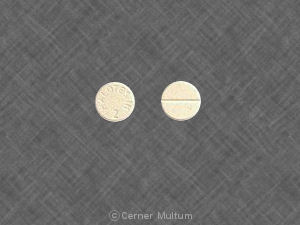Halotestin Interactions
There are 87 drugs known to interact with Halotestin (fluoxymesterone), along with 11 disease interactions, and 1 alcohol/food interaction. Of the total drug interactions, 11 are major, and 76 are moderate.
- View all 87 medications that may interact with Halotestin
- View Halotestin alcohol/food interactions (1)
- View Halotestin disease interactions (11)
Most frequently checked interactions
View interaction reports for Halotestin (fluoxymesterone) and the medicines listed below.
- Accuretic (hydrochlorothiazide / quinapril)
- Actos (pioglitazone)
- Alcohol (contained in alcoholic beverages) (ethanol)
- amphetamine
- Antispas (atropine / hyoscyamine / phenobarbital / scopolamine)
- aspirin
- atenolol
- dehydroepiandrosterone
- diazepam
- Dulcolax Laxative (bisacodyl)
- Duramorph (morphine)
- fluoxetine
- Follistim (follicle stimulating hormone)
- Glycerol (glycerin)
- Gonal-f RFF Pen (follicle stimulating hormone)
- HCG (chorionic gonadotropin (hcg))
- ibuprofen
- Klor-Con M10 (potassium chloride)
- Lantus (insulin glargine)
- Magnacet (acetaminophen / oxycodone)
- metformin
- Norvasc (amlodipine)
- Novarel (chorionic gonadotropin (hcg))
- Nytol (diphenhydramine)
- Ovidrel (chorionic gonadotropin (hcg))
- oxymetholone
- Paracetamol (acetaminophen)
- paroxetine
- testosterone
- Viagra (sildenafil)
Halotestin alcohol/food interactions
There is 1 alcohol/food interaction with Halotestin (fluoxymesterone).
Halotestin disease interactions
There are 11 disease interactions with Halotestin (fluoxymesterone) which include:
- carcinoma (male)
- fluid retention
- hypercalcemia in breast cancer
- hyperlipoproteinemia
- liver disease
- polycythemia
- suppression of clotting factors
- diabetes
- hypercalcemia
- asthma
- thyroid function tests
More about Halotestin (fluoxymesterone)
- Compare alternatives
- Drug images
- Side effects
- Dosage information
- During pregnancy
- Drug class: androgens and anabolic steroids
Related treatment guides
Drug Interaction Classification
| Highly clinically significant. Avoid combinations; the risk of the interaction outweighs the benefit. | |
| Moderately clinically significant. Usually avoid combinations; use it only under special circumstances. | |
| Minimally clinically significant. Minimize risk; assess risk and consider an alternative drug, take steps to circumvent the interaction risk and/or institute a monitoring plan. | |
| No interaction information available. |
See also:
Further information
Always consult your healthcare provider to ensure the information displayed on this page applies to your personal circumstances.


